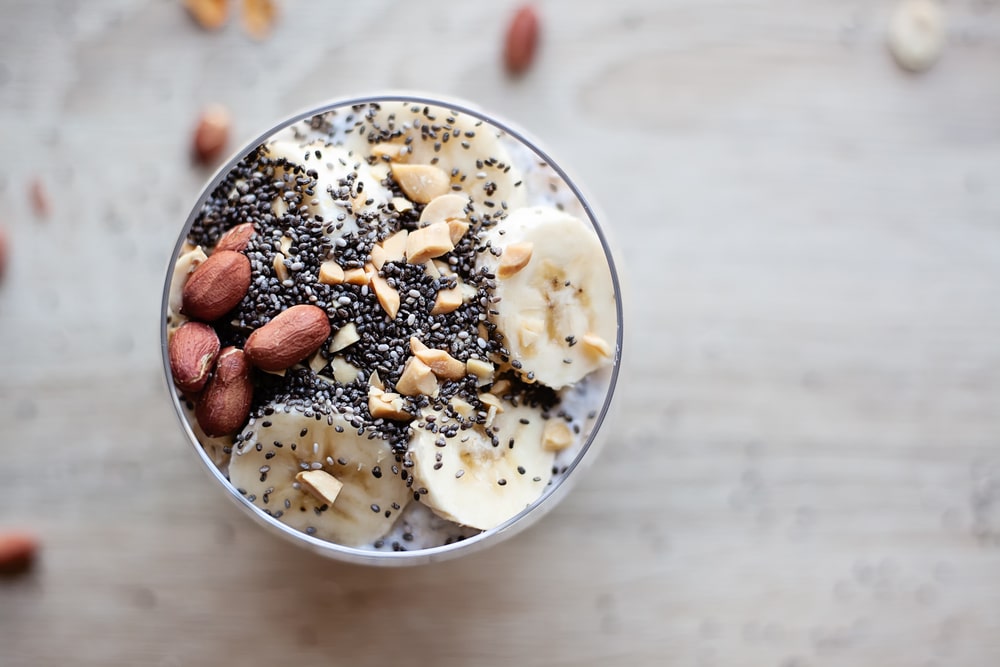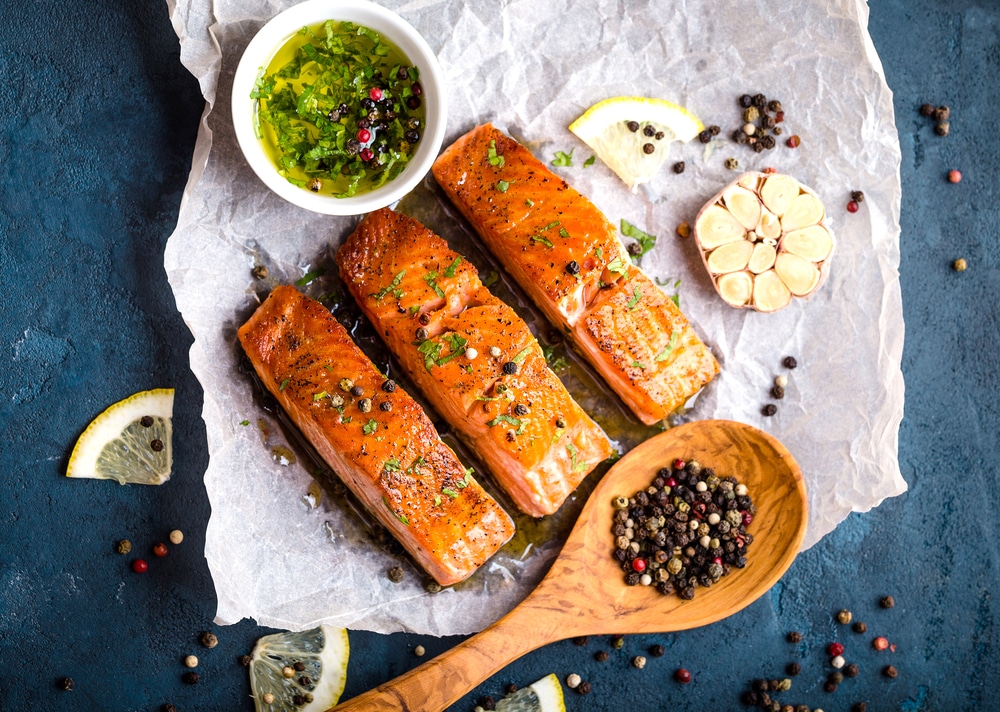4 Essential Nutrients That Help Ease Menopause Symptoms

Menopause comes with plenty of unpleasant symptoms, from hot flashes and brain fog to insomnia and mood swings. Thankfully, there are steps you can take to help your body through this change, even years in advance.
One of the best ways to take charge of your hormonal health is by incorporating a menopause diet!
The following are four key nutrients that can help bring your body back into balance during menopause.
1. Fiber

Photo Credit: Shutterstock
A high-fiber diet can help you with menopause-related digestion issues such as bloating or irregularity.
Getting enough fiber with every meal also helps you feel fuller longer, which can prevent unwanted menopausal weight gain.
That said, it’s extremely common for women to gain weight in their menopausal years! Still, by incorporating more fiber into your diet (combined with cardio and plenty of strength training to keep muscle on your body and your metabolism working), you can help manage your weight.
Foods high in fiber include:
- Bananas
- Apples
- Pears
- Broccoli
- Beans
- Chickpeas
- Brussels Sprouts
- Nuts
- Steel-cut oats
Recipes to Try:
- Overnight Pumpkin Spice Oatmeal
- Shredded Brussels Sprouts & Kale Salad with Apples, Gorgonzola & Candied Pecans
- Southwestern Sweet Pepper Nachos
2. Healthy Fats

Photo Credit: Shutterstock
Omega-3 fatty acids are an essential part of any diet, particularly during menopause. They can help stabilize mood swings and improve anxiety and depression. One of the best sources of omega-3s is oily fish, so you’ll notice they dominate the list below.
Foods rich in omega-3 fatty acids include:
- Salmon
- Tuna
- Herring
- Avocados
- Sardines
- Flaxseeds
- Grass-fed beef
- Kale
- Flax seeds
Recipes to Try:
- Teriyaki Salmon Salad (Easy 15-Minute Recipe!)
- Baked Avocado Eggs
- Avocado Tuna Salad
3. Calcium

Photo Credit: Shutterstock
Nearly every doctor can agree on the importance of calcium as you age. Getting enough calcium during menopause helps you maintain strong bones and avoid osteoporosis.
To stay healthy and prevent injury, make sure you’re getting enough calcium in your diet each day!
Foods rich in calcium include:
- Greek yogurt
- Kefir
- Broccoli
- Leafy greens
- Oranges
- Beans
- Spinach
- Tofu
- Bok Choy
- Almonds
- Milk
Recipes to Try
4. Vitamin D

Photo Credit: Shutterstock
Vitamin D is so important in combination with calcium-rich foods since vitamin D helps your body absorb calcium.
Getting enough vitamin D helps protect your bones and can also help with mood swings during menopause. You can also consider taking a vitamin D supplement, especially in the winter or if you live in a cold, non-sunny climate (since sunlight is a great source of vitamin D).
Most doctors recommend 1,000 to 2,000 units of vitamin D a day if you’re taking it in supplement form.
Foods rich in Vitamin D include:
- Eggs yolks
- Yogurt
- Salmon
- Tuna Fish
- Beef Liver
- Sardines
- Orange Juice (fortified with vitamin D)
- Mushrooms
- Fortified Milk
Recipes to Try:
Lastly, if you’re struggling with menopause weight gain, check out the article 7 Best Supplements For Menopause Weight Gain.
